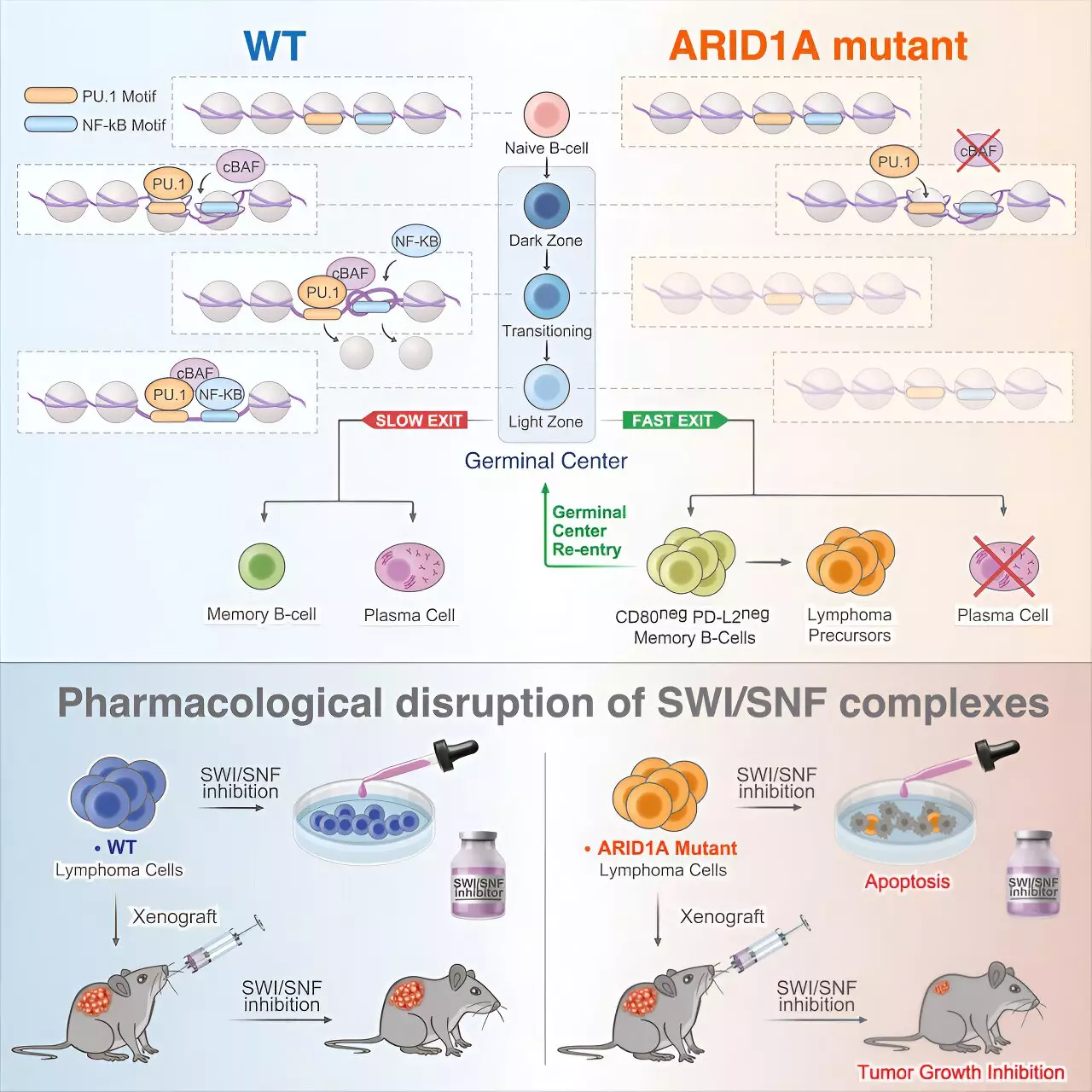Follicular lymphoma, a type of blood cancer affecting B cells, has a known trajectory from a slow-growing form to a more aggressive state in certain patients. Researchers at Weill Cornell Medicine have made significant progress in identifying key drivers of this transformation, offering new insights into potential treatment strategies.
The study published in Cancer Cell sheds light on the role of mutations in the gene ARID1A, which encodes a subunit of the BAF protein complex. These mutations disrupt normal BAF function and drive B cells towards an immature state, increasing the risk of rapid cell division and malignancy. The team also collaborated with experts from the University of Texas MD Anderson Cancer Center, further reinforcing their findings.
One of the most promising aspects of this research is the identification of BAF-inhibitor drugs as potential treatments for aggressive follicular lymphoma. The study demonstrated that lymphomas with ARID1A mutations are highly susceptible to these inhibitors, leading to complete remission in preclinical experiments. This discovery opens up new possibilities for early intervention therapies in high-risk patients.
Implications for Precision Oncology
Dr. Melnick and his team believe that ARID1A serves as a tumor suppressor in follicular lymphoma, highlighting the importance of targeting this gene to prevent disease progression. Furthermore, the potential broader role of BAF inhibitors in various cancers, given the prevalence of BAF-affecting mutations in human malignancies, presents a unique opportunity for precision oncology.
By unraveling the complex mechanisms underlying follicular lymphoma transformation, researchers aim to develop tailored therapies that address the specific genetic vulnerabilities of individual patients. This approach not only offers new hope for those at risk of aggressive disease progression but also paves the way for advancements in precision oncology as a whole.
Overall, the groundbreaking research conducted by Dr. Ari Melnick and his team provides valuable insights into the molecular mechanisms driving follicular lymphoma transformation. Collaboration with experts in the field and a deep understanding of gene regulation have led to the identification of potential therapeutic targets that could revolutionize the treatment landscape for this challenging disease.
The study’s findings hold great promise for improving outcomes in high-risk follicular lymphoma patients and advancing the field of precision oncology. As researchers continue to explore the intricate connections between gene mutations and cancer progression, the possibility of targeted therapies tailored to individual genetic profiles becomes increasingly tangible.

